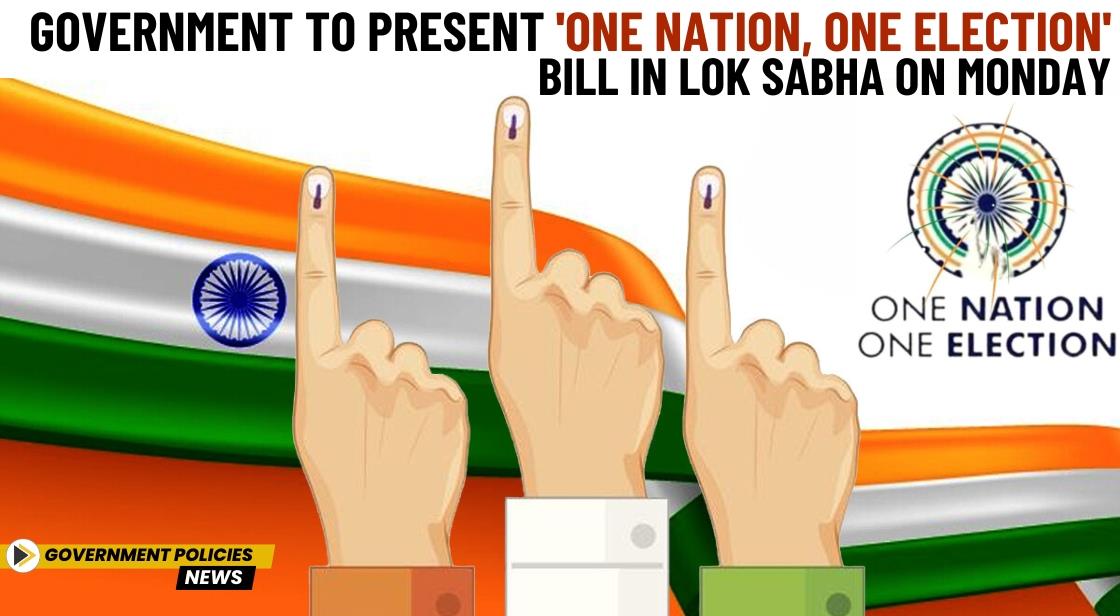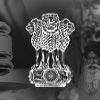Government to Present 'One Nation, One Election' Bill in Lok Sabha on Monday

News Synopsis
The Indian government is set to take a decisive step towards its ambitious "one nation, one election" initiative by introducing two critical bills in the Lok Sabha on Monday. Union Law Minister Arjun Ram Meghwal will present The Constitution (129th Amendment) Bill and The Union Territories Laws (Amendment) Bill, signaling a major move toward simultaneous elections across the country.
Cabinet Approval for Constitutional Amendment
The initiative gained momentum after the Union Cabinet, chaired by Prime Minister Narendra Modi, approved the constitutional amendment bill on Thursday. This approval underscores the Bharatiya Janata Party’s (BJP) commitment to implementing synchronized elections for the Lok Sabha and state assemblies, a longstanding priority for the ruling party.
Details of The Constitution (129th Amendment) Bill
The proposed Constitution (129th Amendment) Bill focuses on establishing a framework for conducting simultaneous elections for the Lok Sabha and state legislative assemblies. This initiative aims to streamline electoral processes, reduce costs, and enhance governance efficiency. However, the bill does not currently cover local body elections for municipalities and panchayats, despite earlier recommendations for phased integration by a high-level committee led by former President Ram Nath Kovind.
The Union Territories Laws (Amendment) Bill
The second bill listed for introduction, The Union Territories Laws (Amendment) Bill, seeks to align existing laws governing Union territories with legislative assemblies with the proposed constitutional amendment. This amendment aims to ensure uniformity in electoral practices across Union territories, paving the way for their inclusion in the simultaneous elections framework.
Exclusion of Local Body Elections
While the high-level committee had suggested the inclusion of local body elections in a phased manner, the current amendment excludes these from its scope. This decision may reflect the government’s strategy to focus initially on national and state-level elections before expanding to municipalities and panchayats.
Why "One Nation, One Election"?
The "one nation, one election" initiative aims to synchronize elections across the country to reduce the financial and administrative burden of frequent electoral cycles. By holding simultaneous elections, the government hopes to promote stability and long-term policy planning, avoiding the disruption caused by recurring elections.
Potential Impact of the Initiative
If implemented, the initiative could mark a significant shift in India’s electoral landscape. It would require extensive logistical planning and coordination, including changes to electoral rolls, voting infrastructure, and the training of election officials. The success of this initiative hinges on political consensus, given the scale of constitutional and administrative changes required.
Next Steps for the Bills
The introduction of the bills in the Lok Sabha marks the beginning of the legislative process. They will likely be debated extensively in both Houses of Parliament, with various stakeholders weighing in on the merits and challenges of implementing simultaneous elections.
In conclusion,
the introduction of the Constitution (129th Amendment) Bill and The Union Territories Laws (Amendment) Bill in the Lok Sabha marks a significant step forward in the Indian government’s pursuit of the "one nation, one election" initiative. With the approval of the constitutional amendment by the Union Cabinet, the government aims to streamline the electoral process, reduce costs, and enhance governance efficiency by holding simultaneous elections for the Lok Sabha and state assemblies.
While local body elections are excluded from the current scope, the focus on national and state elections lays a solid foundation for future integration. The success of this initiative will depend on political consensus and effective coordination, as it requires substantial logistical and administrative changes. If implemented, it could transform India’s electoral landscape, ensuring more stability and long-term policy planning.
You May Like









